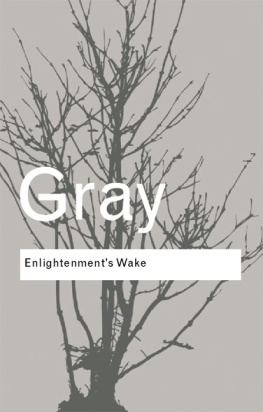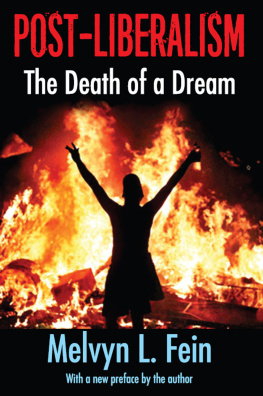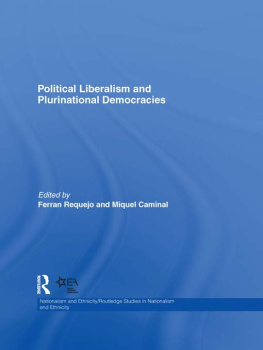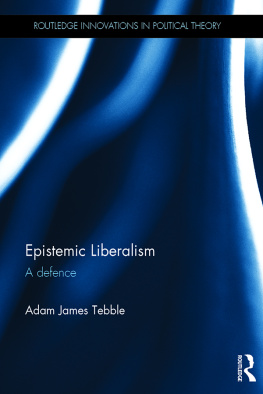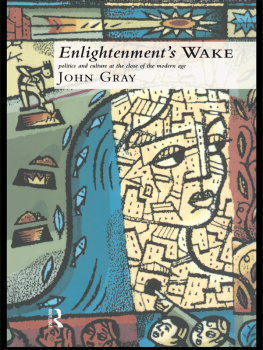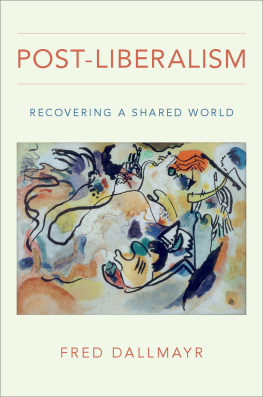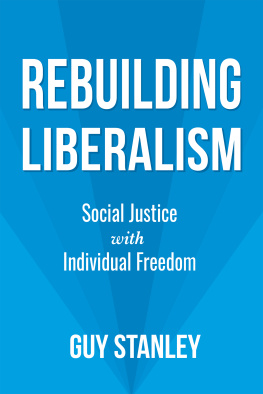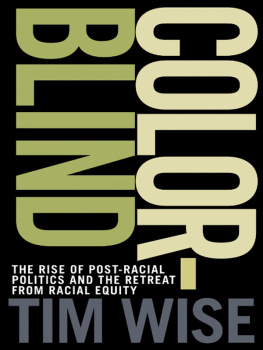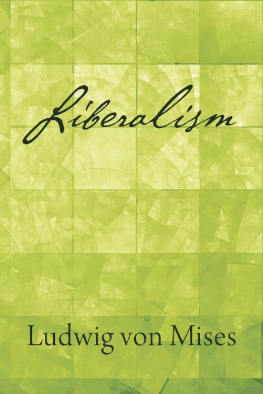Enlightenments Wake
Gray is one of our best social and political theorists. This powerful and radical work opens as many doors as it closes.
New Statesman
Gray is a clever and energetic political theorist in the analytical mode. He is also dauntingly well-read and up to date.
Guardian

Routledge Classics contains the very best of Routledge publishing over the past century or so, books that have, by popular consent, become estalished as classics in their field. Drawing on a fantastic heritage of innovative writing published by Routledge and its associated imprints, this series makes available in attractive, affordable form some of the most important works of modern times.
For a complete list of titles visit
www.routledge.com/classics
John Gray
Enlightenments Wake
Politics and culture at the close of the modern age
with an introduction by the author

London and New York
First published 1995 by Routledge
First published in Routledge Classics 2007
by Routledge
2 Park Square, Milton Park, Abingdon, Oxon OX14 4RN
Simultaneously published in the USA and Canada
by Routledge
270 Madison Ave, New York, NY 10016
Routledge is an imprint of the Taylor & Francis Group, an informa business
This edition published in the Taylor & Francis e-Library, 2007.
To purchase your own copy of this or any of Taylor & Francis or Routledges collection of thousands of eBooks please go to www.eBookstore.tandf.co.uk.
1995 John Gray
Introduction to the Routledge Classics edition 2007 John Gray
All rights reserved. No part of this book may be reprinted or reproduced or utilized in any form or by any electronic, mechanical, or other means, now known or hereafter invented, including photocopying and recording, or in any information storage or retrieval system, without permission in writing from the publishers.
British Library Cataloguing in Publication Data
A catalogue record for this book is available from the British Library
Library of Congress Cataloging in Publication Data
A catalog record for this book has been requested
ISBN 0-203-93351-6 Master e-book ISBN
ISBN13: 978-0-203-93351-0 Master e-book ISBN
ISBN13: 978-1-134-09705-0 ePub ISBN
ISBN10: 0-415-42404-6
lSBN13: 978-0-415-42404-2
CONTENTS
PREFACE
In this book a train of thought developed in my earlier books, Liberalisms: Essays in Political Philosophy, Post-liberalism: Studies in Political Thought and Beyond the New Right: Markets, Government and the Common Environment, is brought to a conclusion. In Liberalisms, I considered the search for foundations within liberal thought, examined the various strategies of argument in which that search had been embodied, and concluded that all of them including those I had myself pursued ended in failure. Liberalisms concluded on a sceptical note, in that it suggested that all foundationalist versions of liberalism were bound to fail, but said little as to what then became of liberalism, or how liberal practice was best to be conceived. In Post-liberalism, I tried to remedy this defect, arguing more positively for an historicist understanding of liberal practice in which the central institutions of liberal civil society were theorized as being generally appropriate vehicles for the protection and enhancement of human well-being in the circumstances of the late modern period, but the universalist claims of doctrinal liberalism were firmly rejected. The subject matter of Beyond the New Right was the capture of Western conservatism by a species of paleo-liberalism whose intellectual credentials were slight, and which in political practice was likely to prove self-defeating. In that book, I attacked the political thought of the New Right for its fundamentalist conception of market institutions and its hubristic neglect of the human need for common life. My argument in that book ended with a defence of traditional conservatism, qualified by concerns about environmental stability and integrity suggested by Green thought. The argument of Beyond the New Right was a development of that of Post-liberalism, in that it suggested that the historic inheritance of liberal institutions and practice was endangered, not as hitherto by left-liberal policy and ideology, but by the market fundamentalism sponsored by the New Right.
In Enlightenments Wake a decades thinking about liberalism, its grounds, scope and limits, is completed. Against the position adopted at the end of Beyond the New Right, I argue here, most comprehensively and systematically in .
In the last and longest chapter, which has been written for this volume, I argue that all schools of contemporary political thought are variations on the Enlightenment project, and that that project, though irreversible in its cultural effects, was self-undermining and is now exhausted. Fresh thought is needed on the dilemmas of the late modern age which does not simply run the changes on intellectual traditions whose matrix is that of the Enlightenment. This is so, in part, because some of our dilemmas issue from aspects of the Enlightenment itself in particular its assault on cultural difference, its embodiment of Western cultural imperialism as the project of a universal civilization, and its humanist conception of humankinds relations with the natural world. This last element of the Enlightenment has been transmitted even to cultures which have modernized without Westernizing, and constitutes the Wests only truly universal inheritance to humankind, which is nihilism. Because this condition has its roots in ancient and even primordial Western traditions, there can be no question of curing the disorders of modernity by a return to tradition. Nor does the stance of post-modernism, in which the emancipatory project of the Enlightenment is asserted incongruously from within the perspective of a critique of its cultural ground in the modern world-view, begin to plumb the depth of our condition. I try to open up a new path of thinking on these questions in the last chapter of this book.
I am grateful to the directors and staff of the Social Philosophy and Policy Center, Bowling Green, Ohio, where part of the work on some of the chapters that make up this book was done, for their support. I am indebted to the Principal and Fellows of my College for periods of sabbatical leave in which I was able to pursue the thoughts about which I have written here.
John Gray
Jesus College, Oxford
September 1994
ACKNOWLEDGEMENTS
is published for the first time in this volume.
INTRODUCTION TO THE ROUTLEDGE CLASSICS EDITION
When Enlightenments Wake first appeared twelve years ago the idea that we inhabit a post-Enlightenment world was received with some scepticism. The claim that we are living in an age distinguished by the collapse of the Enlightenment project on a world-historical scale, dominated by renascent particularisms, militant religions and resurgent ethnicities as I put it at the start of the books first chapter seemed to be at odds with the dominant forces of the time. Communism had collapsed, democracy was spreading and globalization was advancing rapidly. Western governments and international institutions framed their policies on the assumption that these trends were irreversible. In the academy liberal political theorists dutifully reproduced the consensus: the process might not be strictly inevitable, but there could be no reasonable doubt that, sooner or later, all of humankind would join the West in accepting Enlightenment values.

